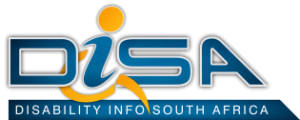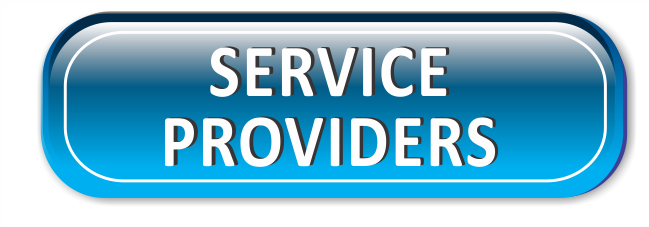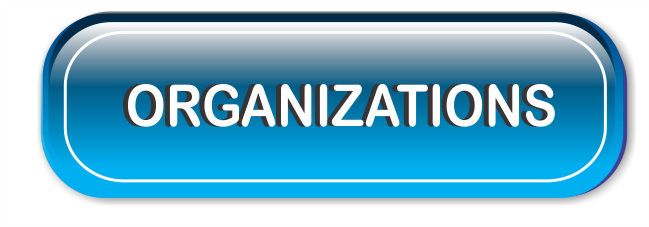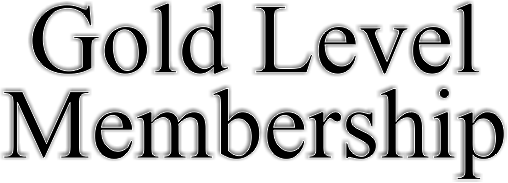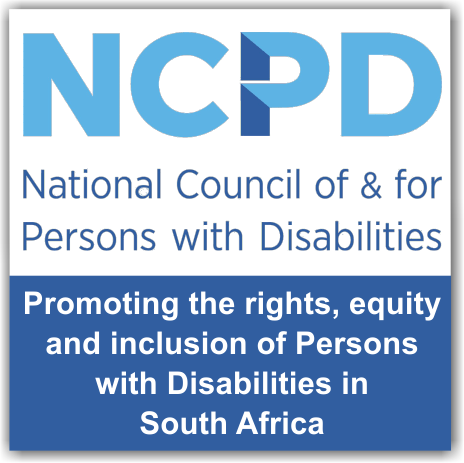Organizations
Introduction
Since the International Year of Disabled Persons in 1981, people with disability have organized themselves into their own organizations all over the world including South Africa. Disabled People's Organizations (DPOs) are those controlled by a majority of people with disability (51%) at the board and membership levels. The role of these organizations includes providing a voice of their own, identifying needs, expressing views on priorities, evaluating services and advocating change and public awareness.
DPOs believe that people with disability are their own best spokespersons and their role has been and is fundamental for the human rights movement of people with disability.
Types of Disability Organizations in South Africa
There are a wide range of advocacy and self-help organization which exist in South Africa. They include organisations such as the overtly political Disabled People South Africa, aligned with the ruling African National Congress, National Council of and for Persons with Disabilities (NCPD) and Disability info South Africa (DiSA), as well as single-issue national organisations such as the SA Federation for Mental Health (SAFMH) and Down Syndrome South Africa, to name just a few.
There are 3 different main types of Disability organisations in South Africa:
- Cross-disability organizations, such as the National Council of and for Persons with Disabilities (NCPD) and Disability info South Africa (DiSA), which represents the interests of all persons with disabilities in South Africa.
- Diagnostic-focused organizations which represent a medical diagnostic group such as the SA Federation for Mental Health (SAFMH) and Down Syndrome South Africa. Within these DPOs that represent medical diagnostic groups, are provincial organisations to assist it's members in a particular province, such as Down Syndrome Association of the Western Cape (DSAWC).
- Population-specific organizations, represent a population group such as children with disabilities, an example of this is The Sunshine Association.
1. Cross Disability Organizations
Cross-disability organizations represent the interests of all persons with disabilities in South Africa, and include the National Council of and for Persons with Disabilities (NCPD) and Disability info South Africa (DiSA).
National Council of and for Persons with Disabilities (NCPD)
The NCPD is a NGO with a footprint throughout South Africa that plays a lobbying & advocacy role when it comes to the rights of persons with disabilities. "We're an umbrella body coordinating the advancement of the rights of persons with physical disabilities in accordance with the White Paper on the Rights of Persons with Disabilities, the UN Convention on the Rights of Persons with Disabilities and more. We have nine provincial Associations for Persons with Disabilities with numerous projects and branches that focus on rural development as well as social."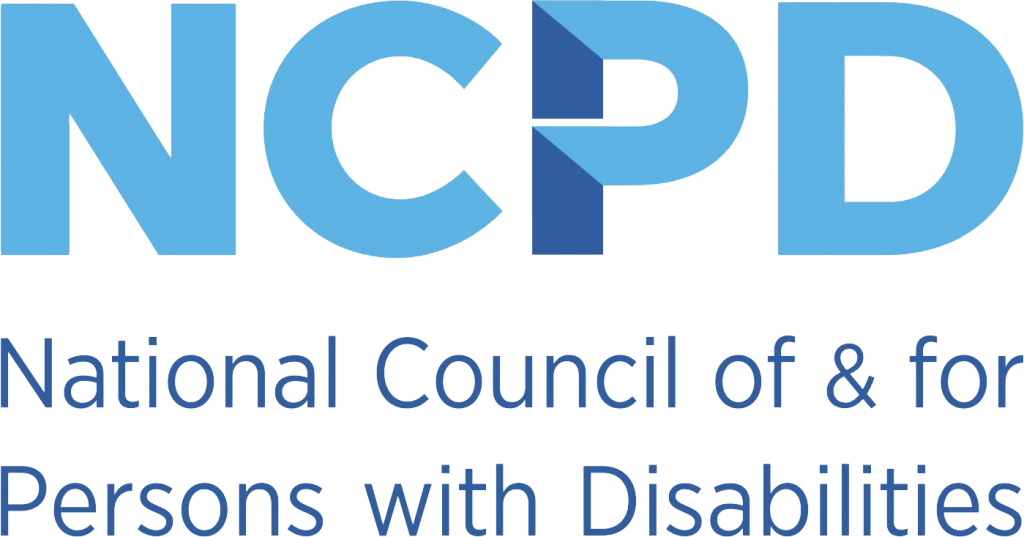
The The National Council of and for Persons with Disabilities does advocacy work and services leading to an equitable and inclusive society. "We are affiliated to the South African Disability Alliance, as well as Rehabilitation International. Our programmes cover the whole of South Africa."
Services
The National Council of and for Persons with Disabilities offers a wide variety of different Services, they include:
Job Placement & Skills Development: The National Council of and for Persons with Disabilities have programs in place that aid persons with disabilities, to find jobs & acquire skills they my need in the workplace. "We offer BBBEE advice and services related to persons with disabilities, including: Job placement, skills development, preferential procurement, ownership and supply chain development."
Workplace Policy & Disability Equity Training: The National Council of and for Persons with Disabilities offers Disability Equality Training courses to address the need for information about reality of disability. Training is tailor made for every sector, including: Tourism, Tertiary Education, Banking, Mining and more. Through training they will find ways to challenge the organisational behaviour which reinforces negative myths and values and which prevents disabled people from gaining equality and achieving full participation in society. Training is done by an expert well trained team of persons with disabilities.
Training: The NCPD is proud to be in a position to offer various SETA accredited training courses ( short course, learnerships and internships) together with corporate partners whom then get their BBBEE POINTS for the DTI scorecard. We also do short training of Professionals in the Services and Health profession , for which these professionals get CPD points. The courses for architects, and other professionals is not accredited for CPD points. Other training includes Caregiver training for carers of children or adults; Governance training; Fundraising training; Disability Equity training; Reasonable accommodation; Inclusive design; Various impairments and the implications; Drivers of persons with disabilities; Human Rights and advocacy; Assistive device repairs & Transport and driving training. The majority of training sessions can be tailor-made to suit your needs.
Assistive Devices: Many persons with disabilities require the use of an assistive device for independence, but these devices are usually extremely expensive and therefore unaffordable for the majority. The public health system does what it can to provide devices, but the demand is huge and it cannot entirely fulfill the need. NCPD is not in a position to fund assistive devices, but from time to time, we are approached by donors wishing to fund assistive devices, which we can then pass on to individuals requiring devices.
Universal Design & Access: Persons with disabilities are often excluded from many Events, Services, Information, Communication, Products and Venues, due to all users not considered during the planning phases. The National Council of and for Persons with Disabilities can assist to prevent this from happening by applying Universal Design Principals during the design phase.
Va Va iYouth (Children With Disabilities): Our work in respect of children with disabilities focuses on addressing rights violations and promoting their rights, all with the aim of and to contribute to an improved dispensation for this most vulnerable and exposed group of people in our country. Rights violations and advancing the rights of children with disabilities are addressed through advocacy, lobbying and public education and awareness raising.
Raising Awareness: Living in an age where information is for the most part a click away to a large part of society, should mean that persons with disabilities enjoy all their non-disabled counterparts do, but despite democracy and the information age, persons with disabilities often still find themselves on the side-line when it comes to securing employment or even just having access to enjoy a sports match or theatre production. The need for raising awareness of impairment, disability and related matters, we aim to raise the level of awareness about disability related issues through various initiatives.
Economic Empowerment: We go to certain areas to ascertain if the information we have on-hand is correct and/or to be up-to-date with the current situation in those areas. The same goes for projects but with projects we also need to see how sustainable these projects are and if they need assistance to either stay the course or change the project toward better outcomes for the participants and beneficiaries of these projects.
Other Services: Other Services: The National Council of and for Persons with Disabilities can also supply information and assist with a variety of other Services, including: Universal Design and Access Audits; Disability Equity Training, Workplace services such as Job Placement, reasonable accommodation and Policy Review, Internships and training; as well as Entrepreneurs with disabilities; Disability information and children’s programmes; Fund Raising and Referrals of persons with disabilities needing our services. Contact us for more information on: Tel: +27 11 452 2774 or Email: therina@ncpd.org.za or read the article below about the Fund Raising Partnerships that the National Council of and for Persons with Disabilities are involved in.
Fund Raising Partnerships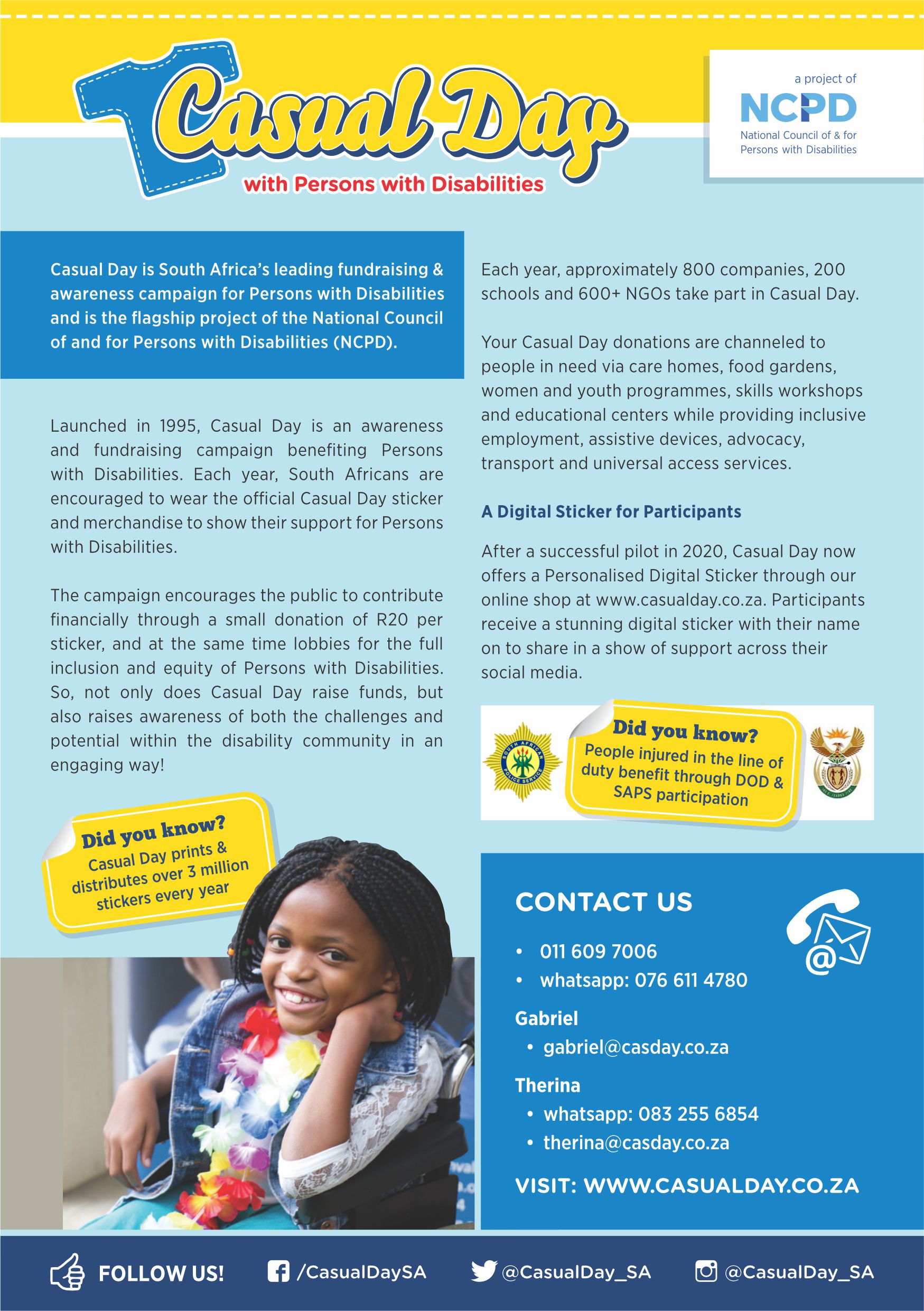
The National Council of and for Persons with Disabilities organize and run a number of fun raising projects to help raise funds including "Casual Day" and the "Nappy Run"
"Casual Day: is South Africa’s leading fundraising & awareness campaign for persons with disabilities and is the flagship project of the National Council of and for Persons with Disabilities (NCPD). Casual Day was launched in 1995 and is an awareness and fundraising campaign benefiting persons with disabilities. Each year on the first Friday of September, South Africans are encouraged to go to work or school dressed differently and to wear the official Casual Day sticker to show their support for persons with disabilities."
"Nappy Run: is a 5km Fun Run which takes place at the Joburg Zoo every year coinciding with National Children’s Day, the purpose of the Nappy Run™ campaign is to educate the public on the violation of rights of our country’s most marginalized and vulnerable group of people – children with disabilities and to appeal to the public for online donations which go towards the purchase of nappies for children with disabilities.
The event is organised by the National Council of and for Persons with Disabilities (NCPD) and forms part of the NCPD’s observation of South Africa’s Disability Rights Awareness Month (DRAM) in November. The Nappy Run campaign runs until 3 December to coincide with the International Day of Persons with Disabilities (IDPD), while DRAM also culminates on that same day. For more information about the Nappy Run™ fun run, or to make a donation, visit www.nappyrun.org.za.
2. Diagnostic Focused Organizations
Diagnostic-focused organizations are those DPO's such as the Diagnostic-focused organizations which represent a medical diagnostic group such as the SA Federation for Mental Health (SAFMH) and Down Syndrome South Africa.
The South African Mental Health Advocacy Movement (SAMHAM)
The South African Mental Health Advocacy Movement (SAMHAM) was established by the SA Federation for Mental Health (SAFMH) in 2007 in recognition of the importance of giving persons with psychosocial and intellectual disabilities a voice, and further recognising that they are ultimately the experts in mental health and should thus always be key partners among all stakeholders within the mental health sector. Outside of the mental health field and within communities, persons with psychosocial and intellectual disabilities must be empowered to participate at all levels of their lives.
Down Syndrome South Africa
Down Syndrome South Africa is the National Umbrella Body of all Down Syndrome associations across South Africa and currently have eight branches, one support group and four outreaches in most of the major centres of the country. Down Syndrome South Africa a non-profit organisation which is made up of people with Down syndrome, their families and interested persons working to improve the quality of life for those with Down syndrome by:
- Advocacy and lobbying to parliament, government etc on the rights of persons with Down syndrome and other intellectual disabilities
- Developing and dissemination of updated information through various forms of media
- Raising Awareness
- Promoting World and National Down Syndrome Day annually
- Capacity building of our members
- Training on:
- New Parent Support and Basic Counseling
- Early Intervention - What you need to know
- Inclusive Education
- Self Advocacy
- Job Coaching.
3. Provincial Organizations
Within these DPOs such as Down Syndrome South Africa which represent medical diagnostic groups, are provincial organizations to assist it's members in a particular province, such as:
Down Syndrome Association Western Cape (DSAWC): is a non profit organization that provide support to people with Down syndrome and their families in the Western Cape. "Our aim is to improve quality of life and to develop and refine skills so that people with Down syndrome can contribute to their communities. We support our members through counseling, education, early intervention and sharing of information regarding medical aspects, employment and civil rights."
3. Population-specific Organizations
Population-specific organizations, represent a population group such as children with disabilities, an example of this is:
The Sunshine Association: which is a dynamic, progressive and innovative non-profit organisation in the field of intellectual disability, offering diverse services at many levels. All developments and services offered by the organisation are a direct response to the needs identified in the communities. The Sunshine Centre Association is committed to the development and inclusion of children with disabilities and delays intellectual, developmental, and physical in partnership with families and communities.
4. Sports Organizations
There are also a wide variety of Sports Organizations, including the:
- International organizations such as the International Paralympic Committee (IPC), International Sports Federation for Persons with Intellectual Disability (INAS-FID) and Special Olympics World Games.
- National sports organizations that govern abeld bodied sports, as well as some disability sports, such as The South African Sports Confederation and Olympic Committee (SASCOC)
- Special Olympics South Africa, which govern Special Olympics sports in South Africa.
- Provincial Sports Associations & Sports Clubs which offer either a single or a variety of sports in a particular province or city in South Africa.
International Paralympic Committee (IPC)
The International Paralympic Committee (IPC) is the global governing body of the Paralympic Movement. Its purpose is to organise the Summer and Winter Paralympic Games and act as the International Federation for ten sports, supervising and coordinating World Championships and other competitions. For a time, athletes with intellectual disabilities were included in the Paralympic Games. After a cheating scandal at the 2000 Summer Paralympics, where a number of athletes participating in intellectual disability events were revealed to not be disabled, INAS-FID athletes were banned from Paralympics competition, but the ban on intellectually disabled athletes has since been lifted, but the number of events for people with intellectual disabilities are far less than other disabilities.
The vision of the IPC, run by 200 members, is ‘To enable Para athletes to achieve sporting excellence and inspire and excite the world.’
International Sports Federation for Persons with Intellectual Disability (INAS-FID)
INAS (International Sports Federation for Persons with Intellectual Disability; originally called INAS-FMH and later INAS-FID) was established in 1986 by professionals in the Netherlands who were involved in sport and wanted to promote the participation of athletes with mental handicap in elite sport.
Special Olympics
Special Olympics World Games are held every two years, alternating with Summer and Winter Games. The last Special Olympics World Games was on the 25th July to 2nd August 2015 in Los Angeles, California, USA.
In addition to the World Games, Special Olympics holds competitions at the local, state/province, country, region and world level every year. In all, more than 70,000 Special Olympics competitions are held every year. South Africa takes part in this.
To be eligible to participate in Special Olympics, you must be at least 8 years old and identified by an agency or professional as having one of the following conditions:
2. Special Olympics South Africa
Special Olympics South Africa is home to more than 45 000 talented athletes trained in 18 competitive sports. We provide year-round training for men, women and children with intellectual disabilities. Our goal is to transform their lives through the joy of sport, and to transform the lives of their families and communities. The global mission of Special Olympics is to provide year-round sports training and athletic competition in a variety of Olympic-type sports for children and adults with intellectual disabilities.
We provide continuing opportunities to develop physical fitness, demonstrate courage, experience joy and participate in a sharing of gifts, skills and friendship with families, other Special Olympics athletes and the community.
3. The South African Sports Confederation and Olympic Committee (SASCOC)
The South African Sports Confederation and Olympic Committee (SASCOC) is the National Olympic Committee (NOC) and National Paralympic Committee (NPC) for South Africa, and are the responsible body for South Africa at the CommonwealthGames. SASCOC is also responsible for high-performance sport in the country and coordinates the relationship with various international sports federations. They not only help look after all our various National Federations who are affiliated to them, but are responsible for awarding National Protea Colours to athletes who have met the criteria to represent South Africa in different sporting codes, including:
4. Provincial Sports Associations & Sports Clubs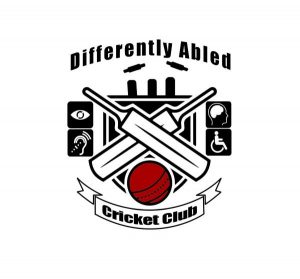
There are various Provincial Sports Associations & Sports Clubs that are also available, which offer either a single or a variety of sports in a particular province or city in South Africa, these Provincial Sports Associations & clubs may include "Disabled" and Abled Body athletes or just "Disabled" athletes, they include:
The Differently Abled Cricket Club: which is an open cricket club for the differently abled cricket players, which includes the Blind, Deaf, Intellectually Impaired (SID and MID) and Physically Disabled. "We are the only club of this kind in South Africa and we would like to make it our goal in getting other regions to follow suit! "
If you would like to find out more about these & other Sports Organizations or the sports that are available for you, you can visit our Sports Page:http://disabilityinfosa.co.za/intellectual-impairments/sports-for-intellectually-impaired/.
References
